Continuing surgical education
As surgical science advances at an extraordinary rate, all surgeons have a duty to keep up to date to offer their patients treatment based on the latest research.
To support the professional development of general surgeons of all specialties, Continuing surgical education provides a wealth of formal digital courses, specialty digests and much more.
A myriad of skills and qualities are required to sustain a career in this field, including personal sacrifice, dedication and resilience. In this section, surgeons can access a series of publications exploring this important topic.

BJS sample document- Surgical Trials
Velde G, Ismail W, Thorsen K.

BJS sample document- test
Velde G, Ismail W, Thorsen K.

Rev test
Kristine Hagelsteen, MD PhD, Chris Mathieu
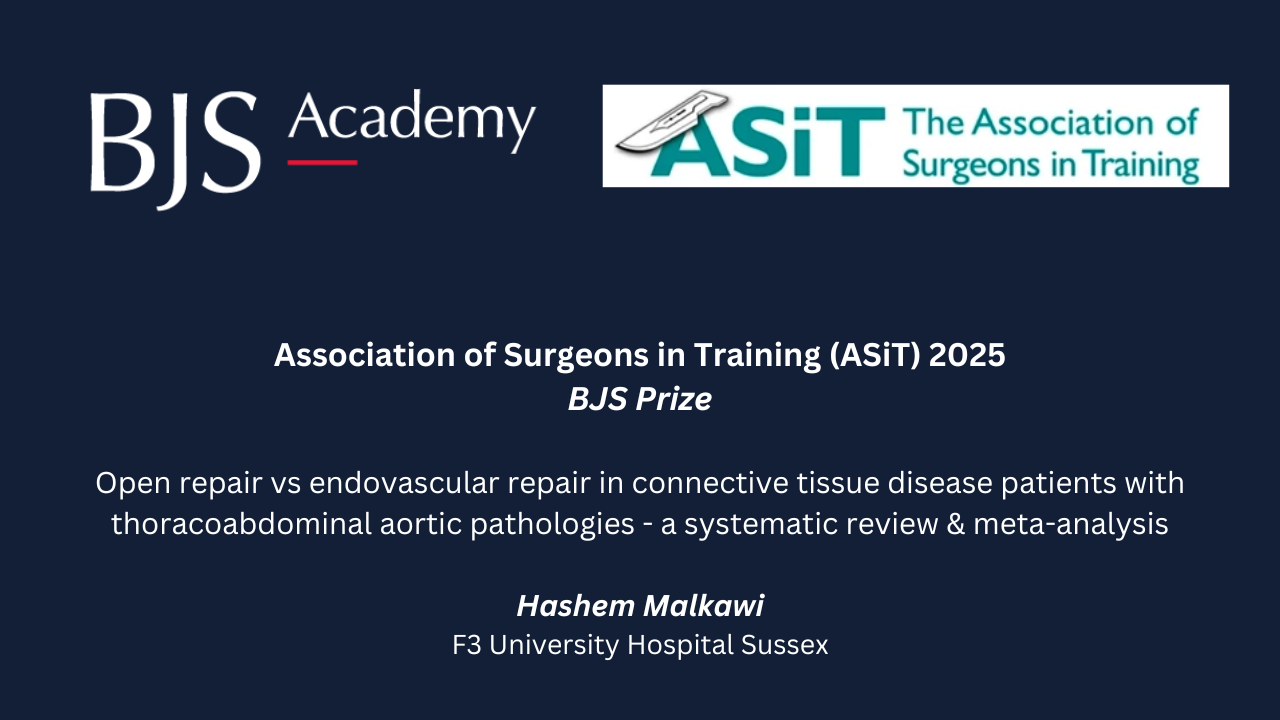
2025 Association of Surgeons in Training BJS Prize: Open repair vs endovascular repair in connective tissue disease patients with thoracoabdominal aortic pathologies - a systematic review & meta-analysis
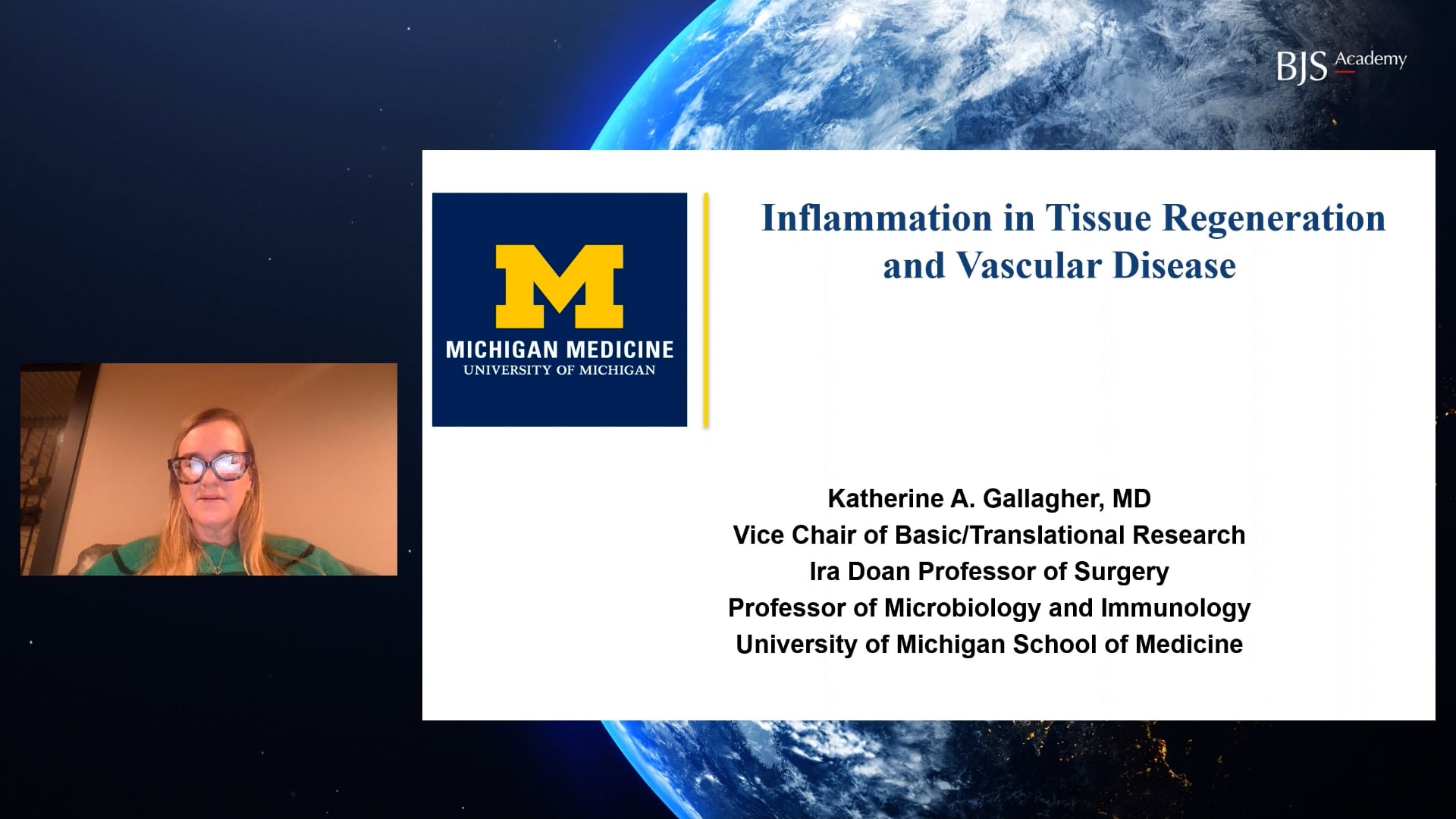
Inflammation in tissue regeneration and vascular disease
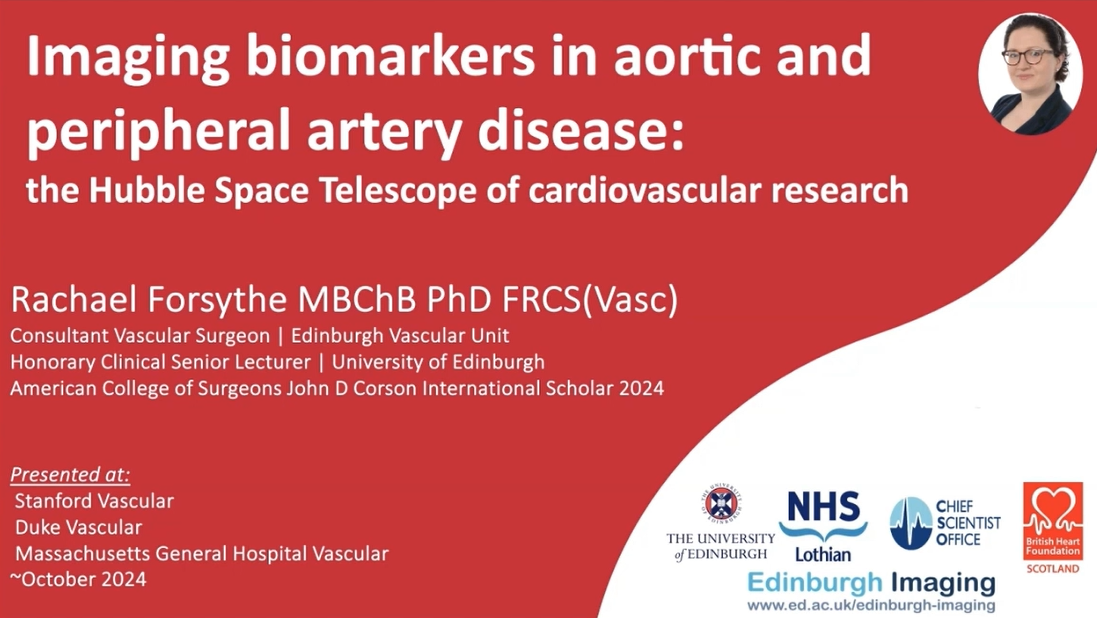
Imaging biomarkers in aortic and peripheral artery disease
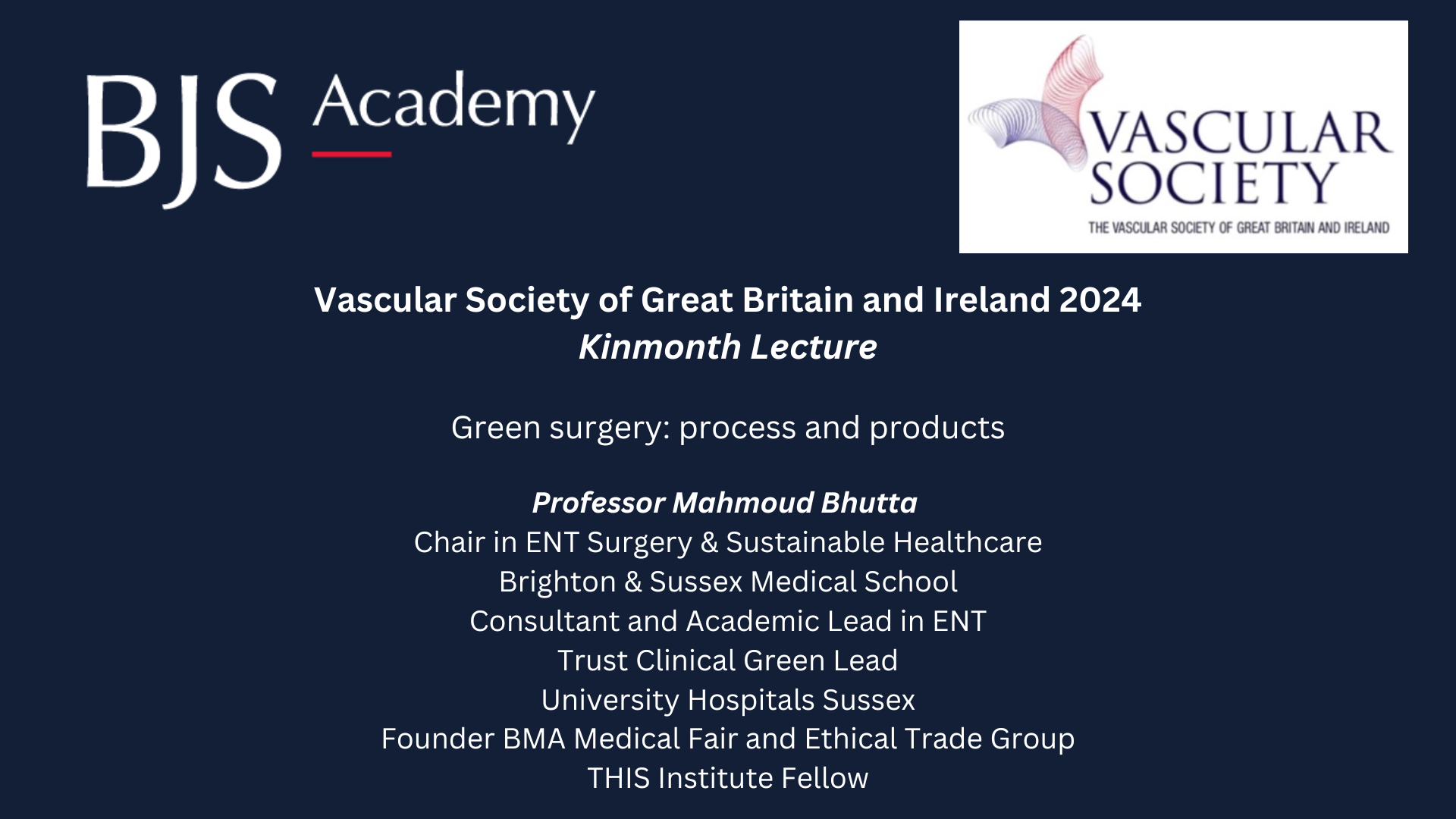
2024 Vascular Society Kinmonth Lecture: Green surgery: process and products
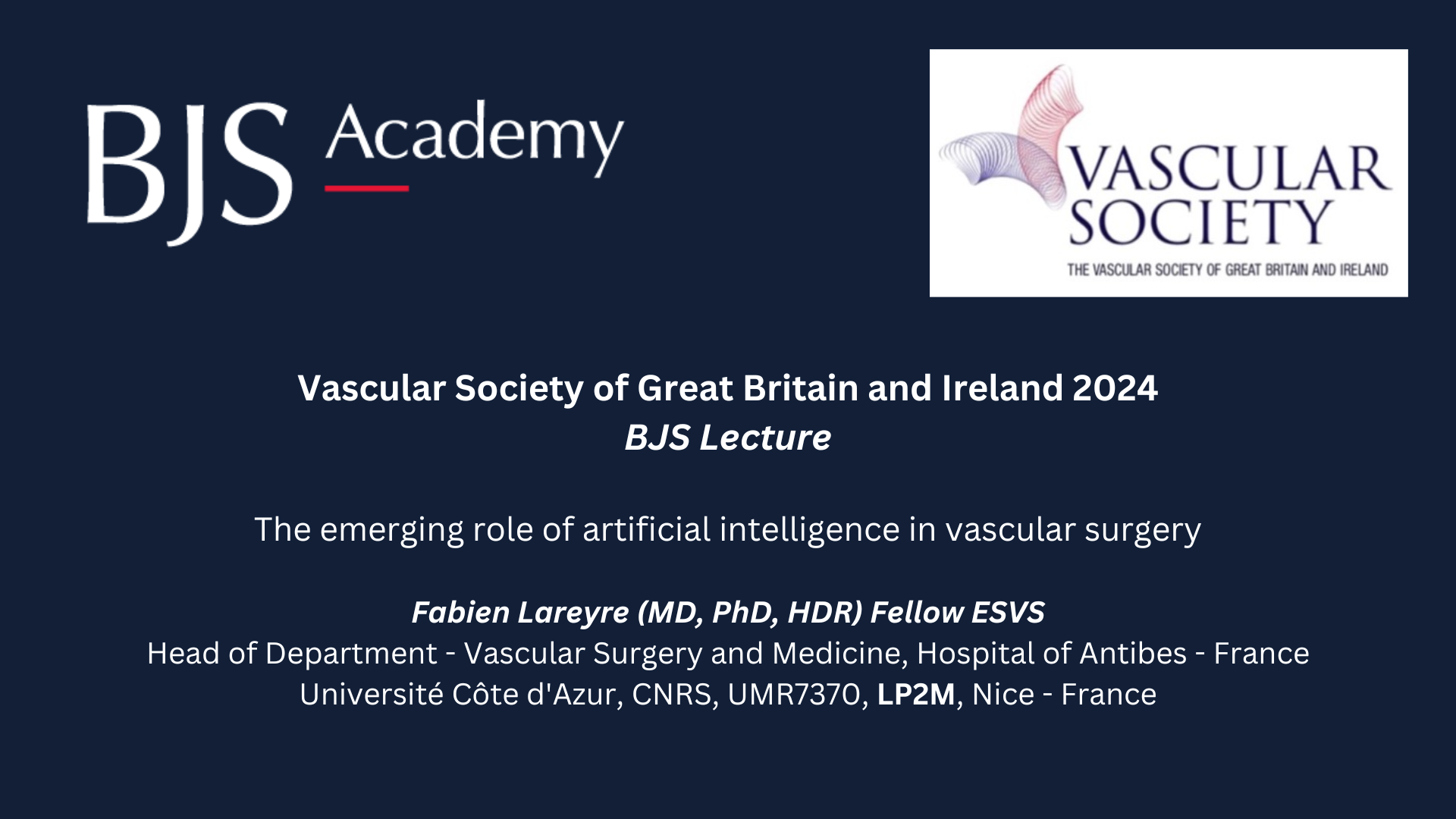
2024 Vascular Society BJS Lecture: The emerging role of artificial intelligence in vascular surgery
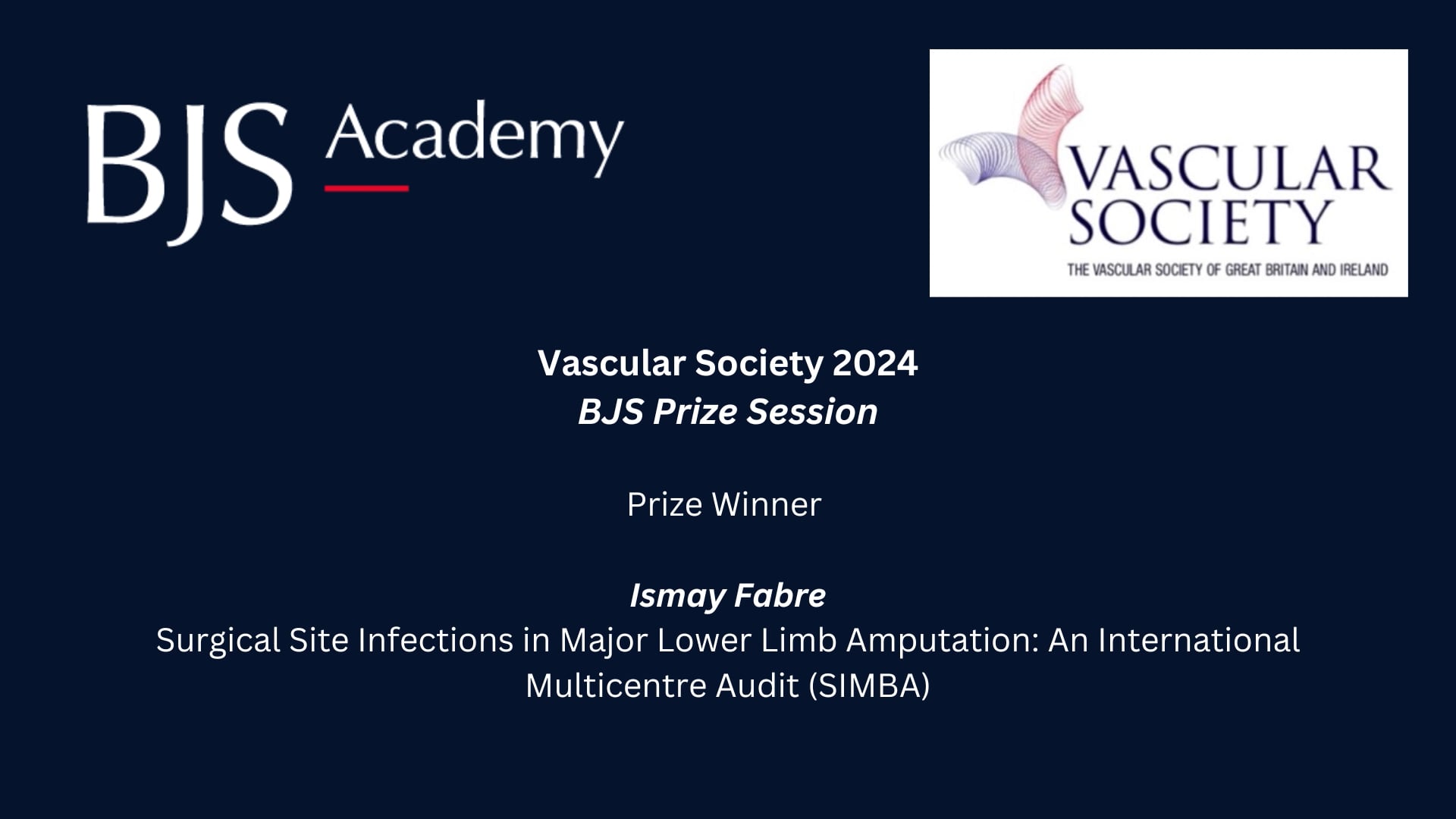
2024 Vascular Society BJS Prize Session

Vascular surgery update 2025: Advancing knowledge and innovation
Sandip Nandhra
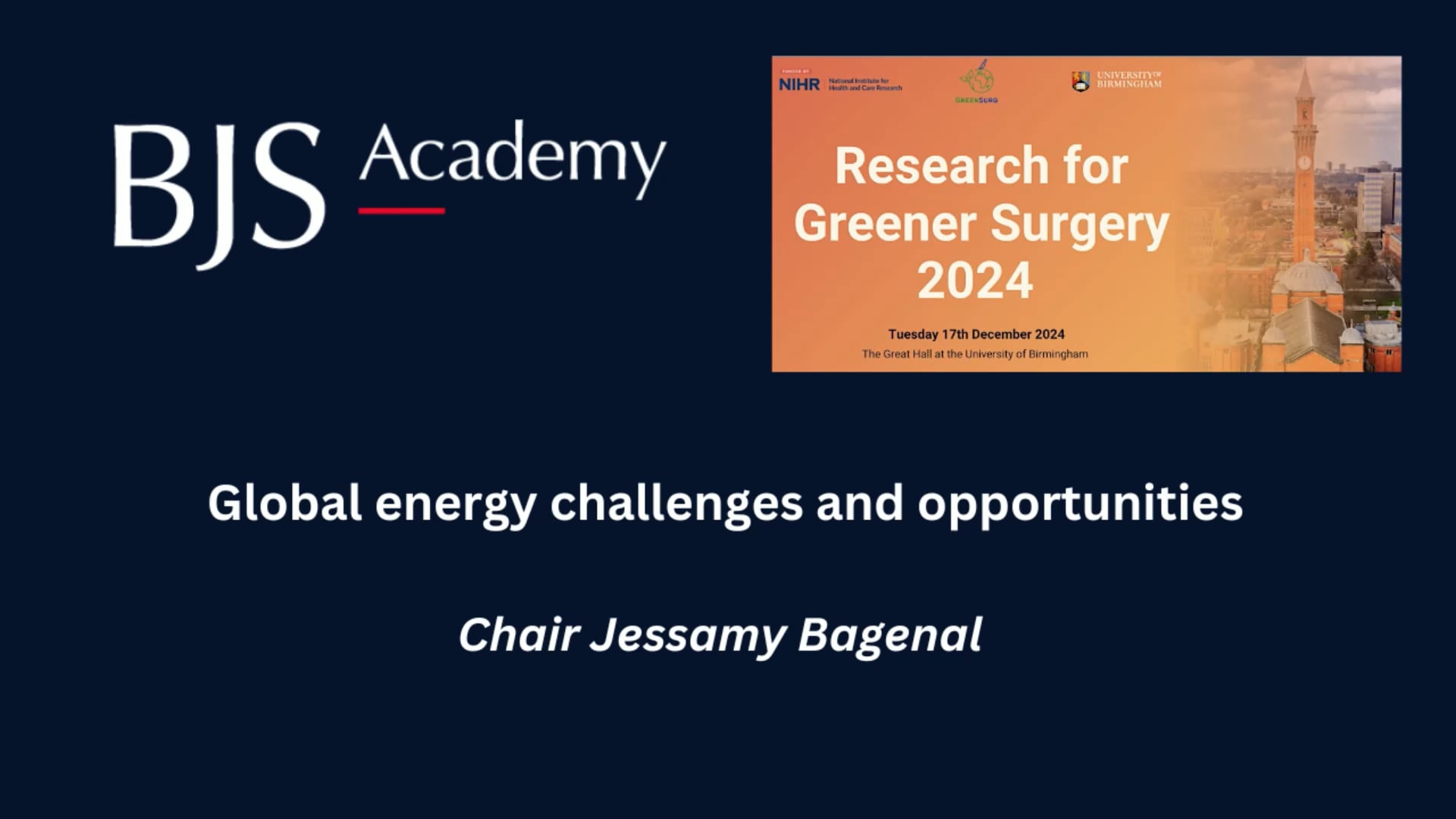
Research for Greener Surgery Conference 2024: Global energy challenges and opportunities
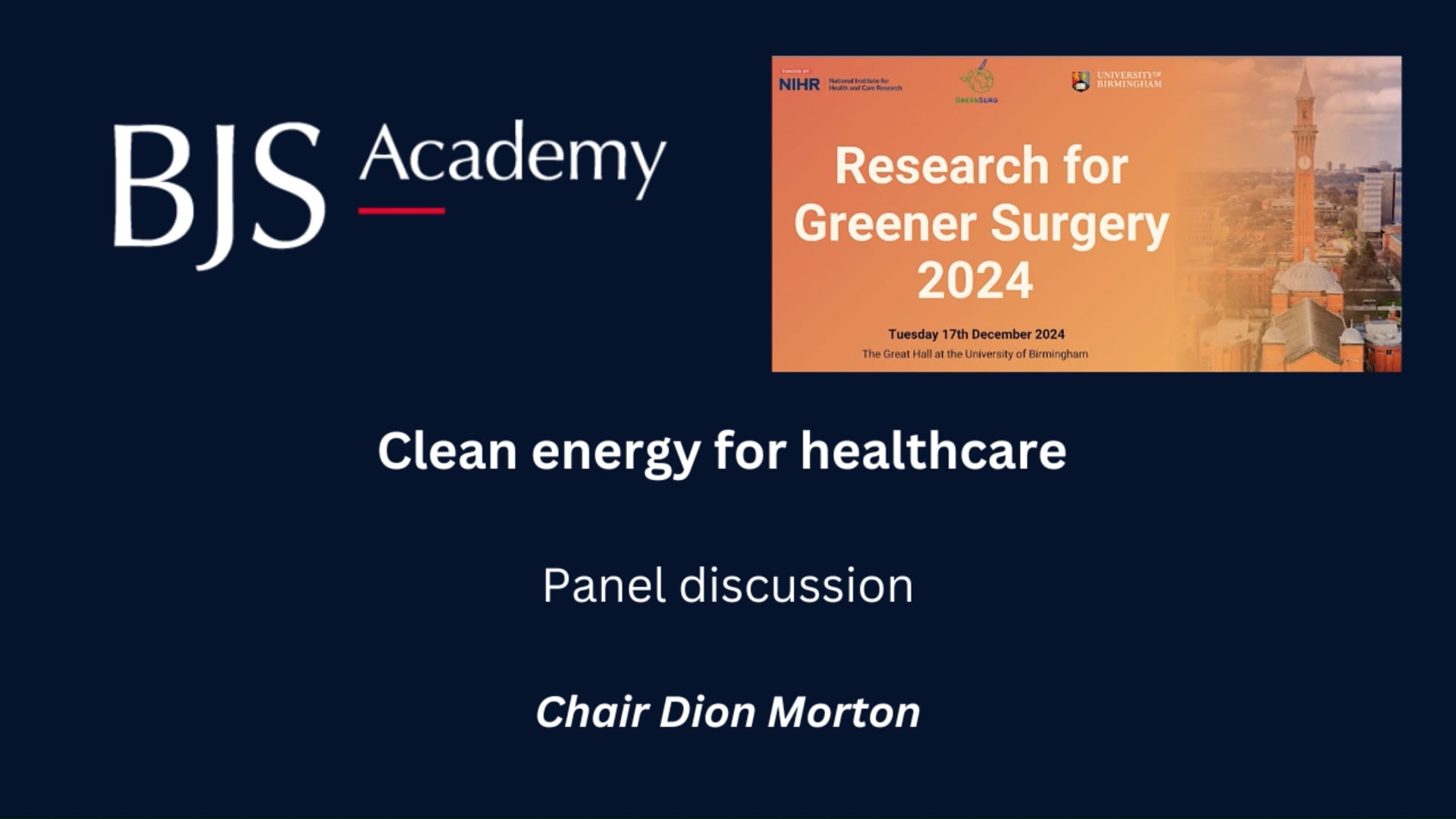
Research for Greener Surgery Conference 2024: Clean energy for healthcare
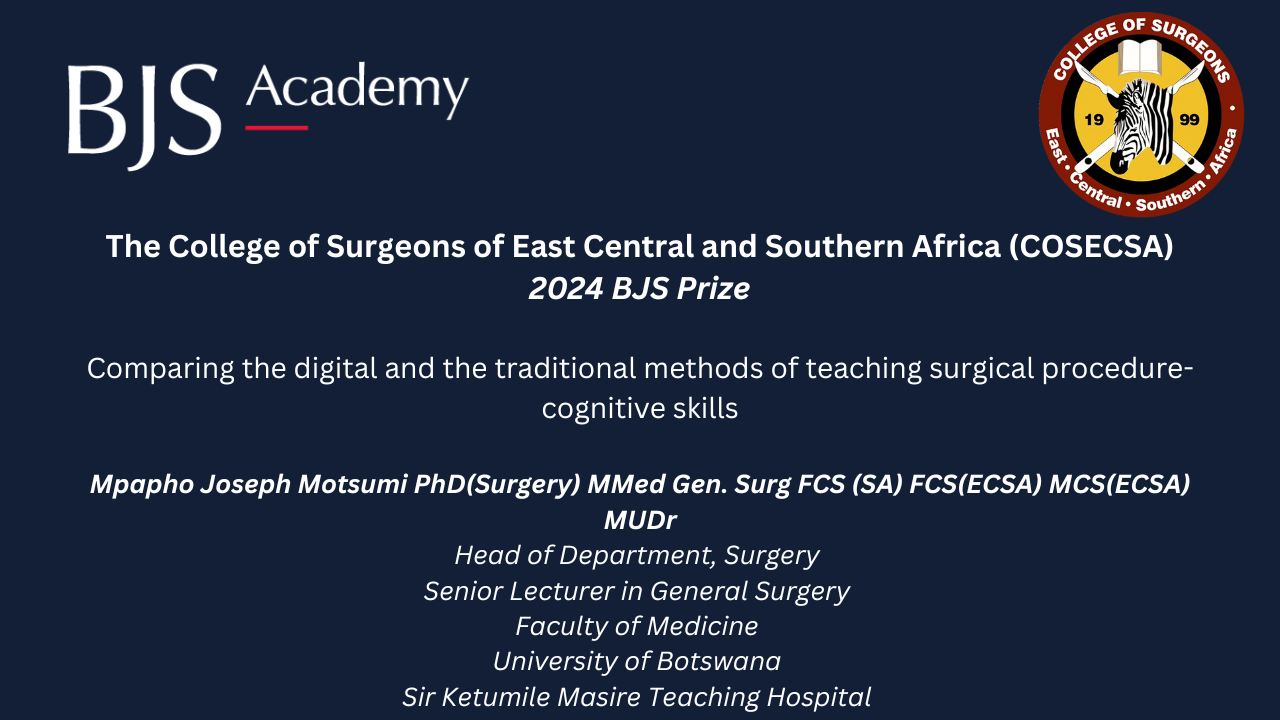
2024 COSECSA BJS Prize: Comparing the digital and the traditional methods of teaching surgical procedure-cognitive skills
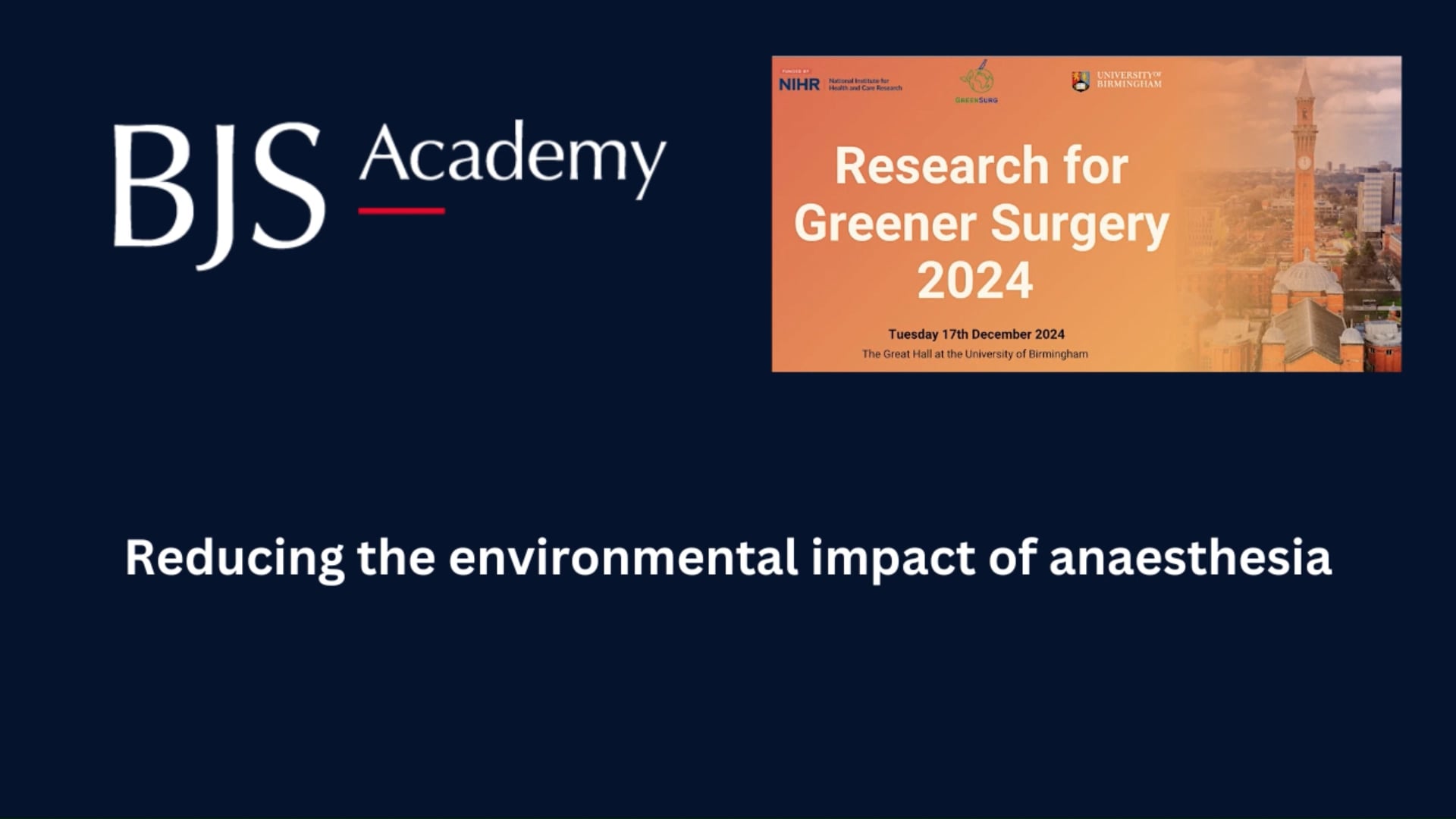
Research for Greener Surgery Conference 2024: Reducing the environmental impact of anaesthesia
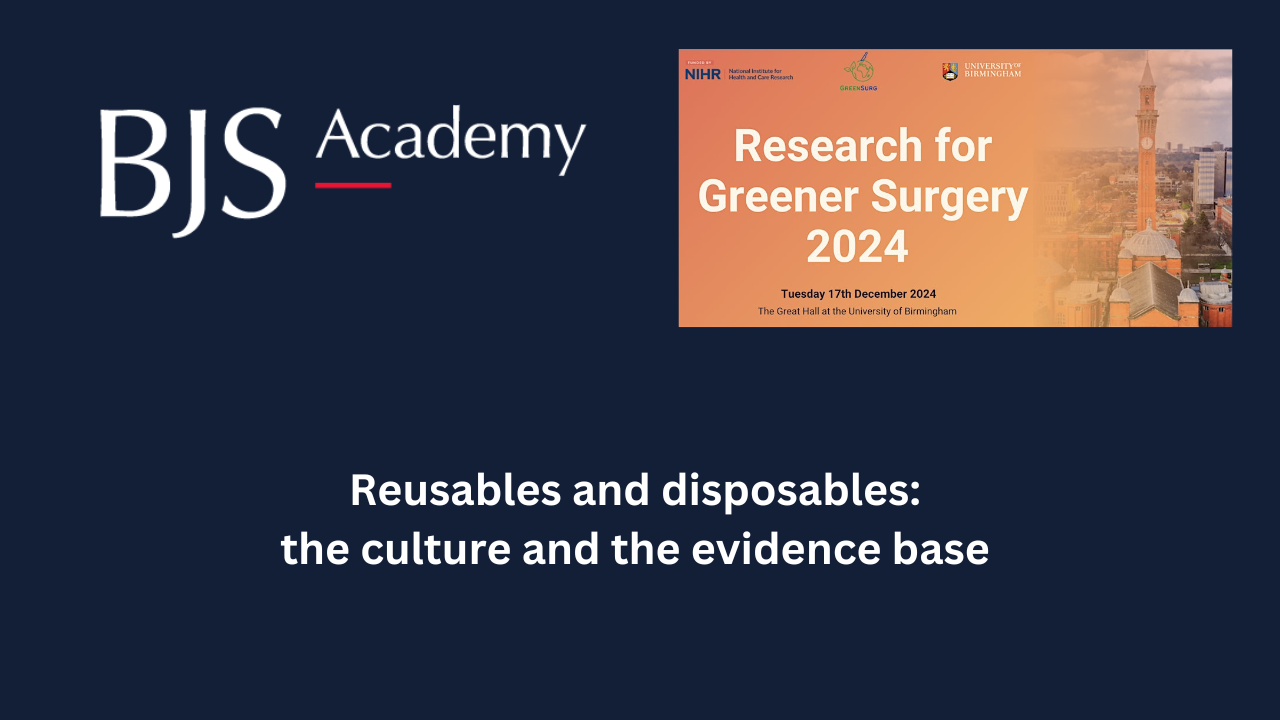
Research for Greener Surgery Conference 2024: Reusables and disposables

The Surgical Research Society BJS Lecture 2025: Curiosity, commitment and collaboration...of molecules and machines

Research for Greener Surgery Conference 2024: Carbon modelling
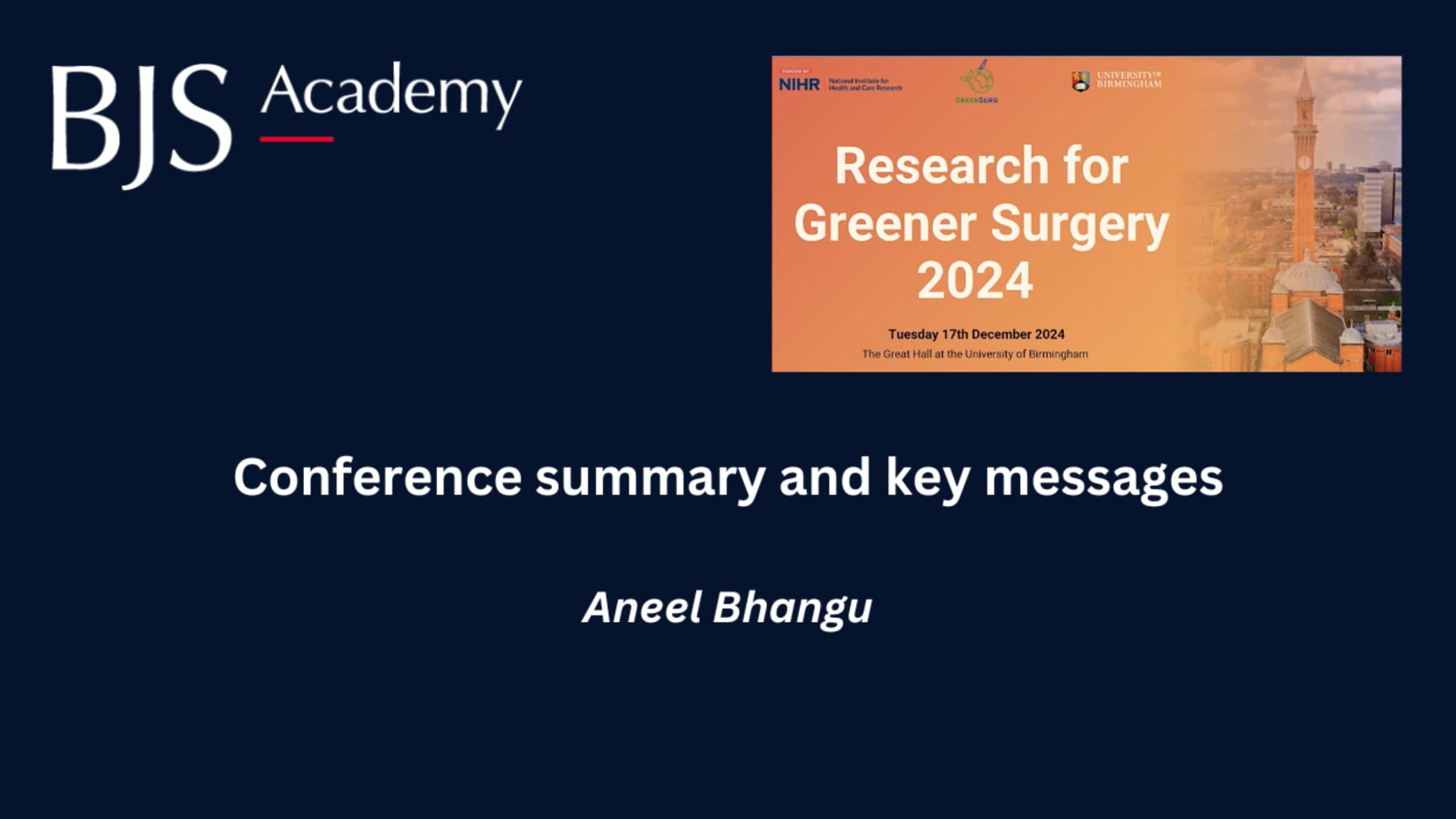
Research for Greener Surgery Conference 2024: Conference summary by Aneel Bhangu

Conference report: Research for Greener Surgery 2024 at the University of Birmingham
Virginia Ledda

2024 Swiss Society of Surgery BJS Prize Session

2024 Swiss Society of Surgery BJS Lecture: Image-enhanced and guided surgery
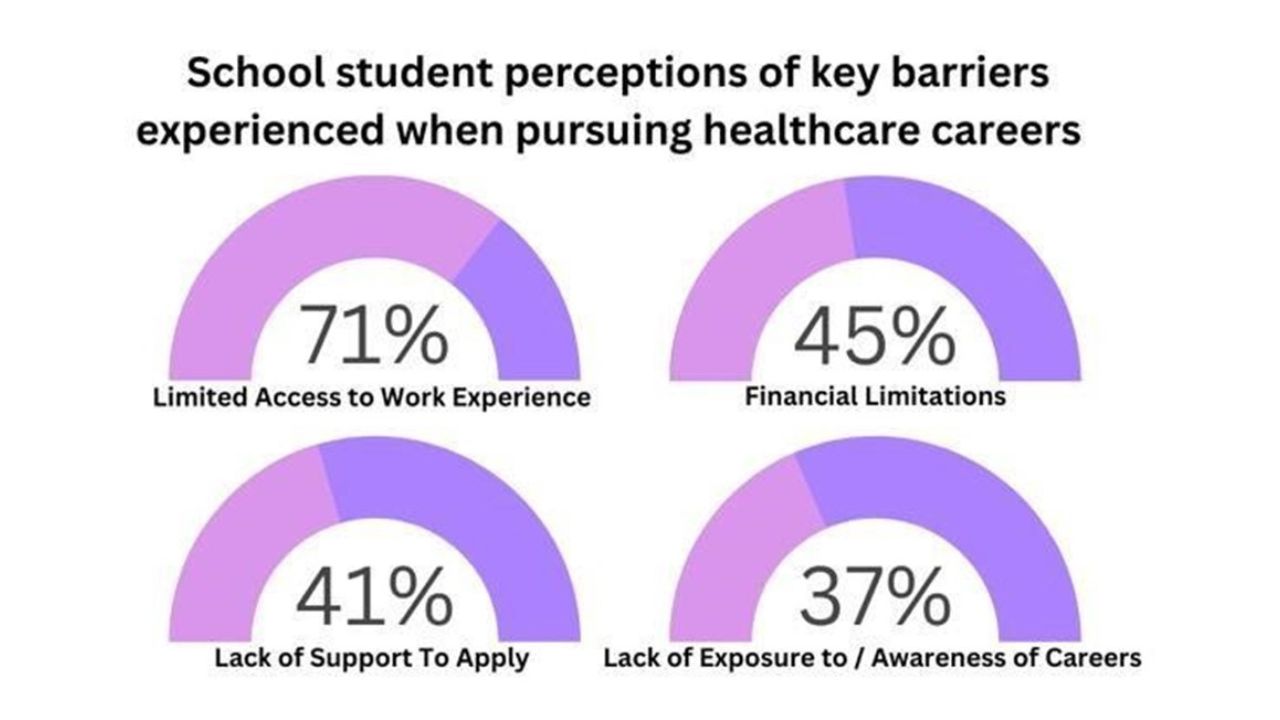
Widening participation in cardiothoracic healthcare: INSINC Insight
Kirstie Kirkley, Georgia R. Layton, Javeria Tariq, Heen Shamaz, Mostin Hu, Alana Atkinson, Deborah Harrington, Elizabeth Belcher, Jason Ali, Narain Moorjani, Farah Bhatti, Karen Booth
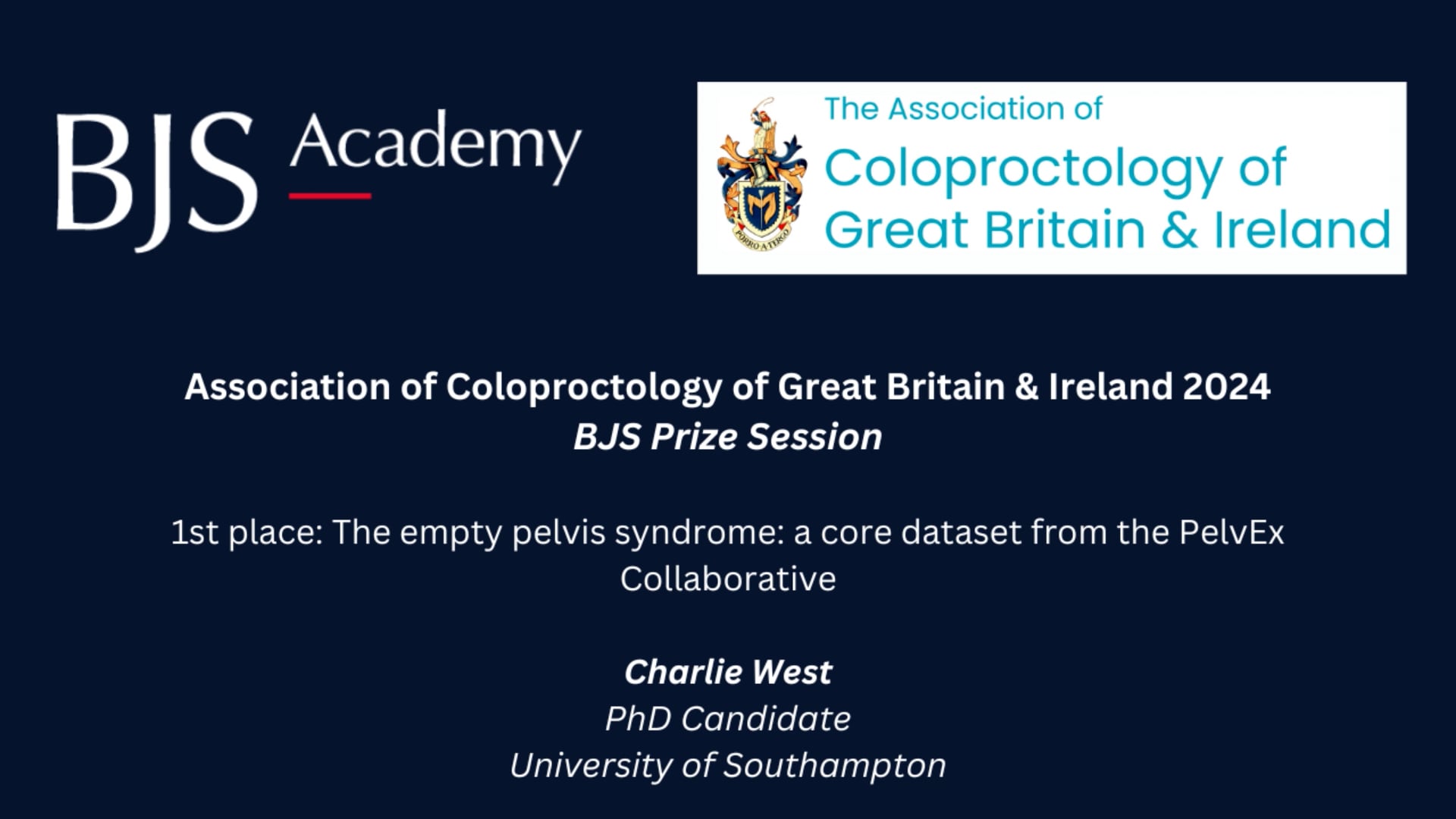
ACPGBI 2024 BJS Prize Session: The empty pelvis syndrome: a core dataset from the PelvEx Collaborative
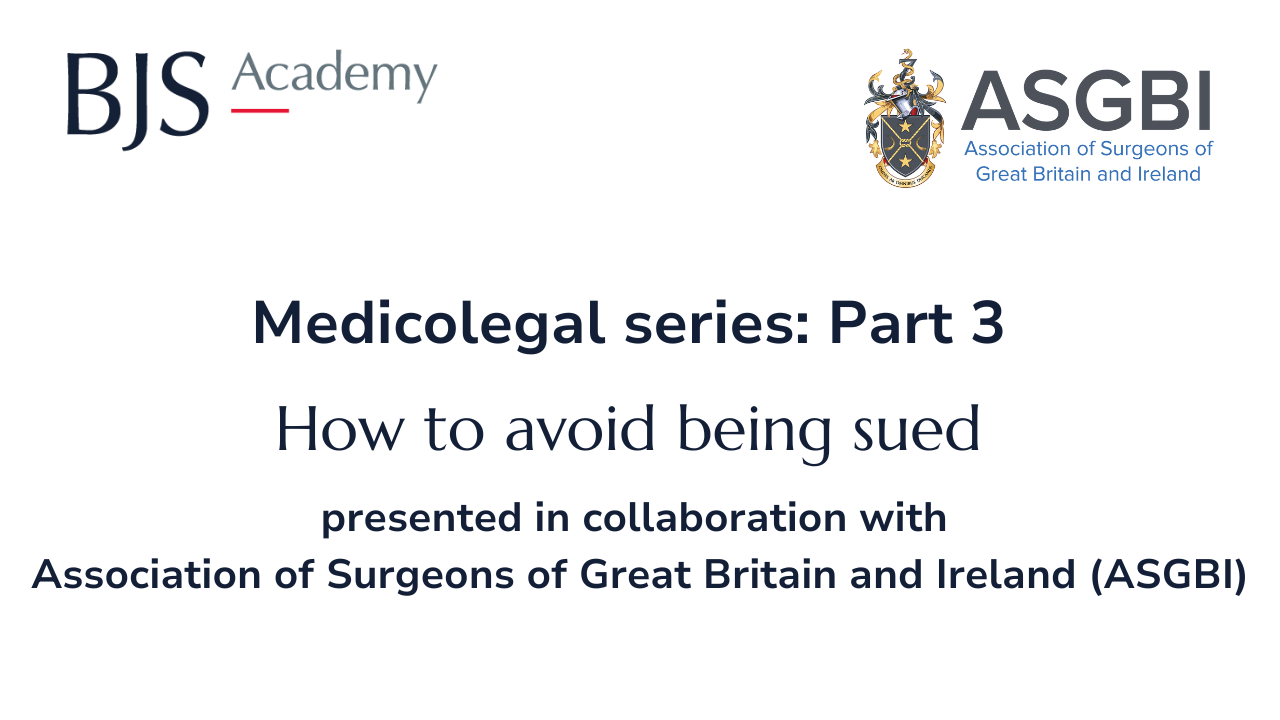
How to avoid being sued
Jonothan J Earnshaw DM FRCS
